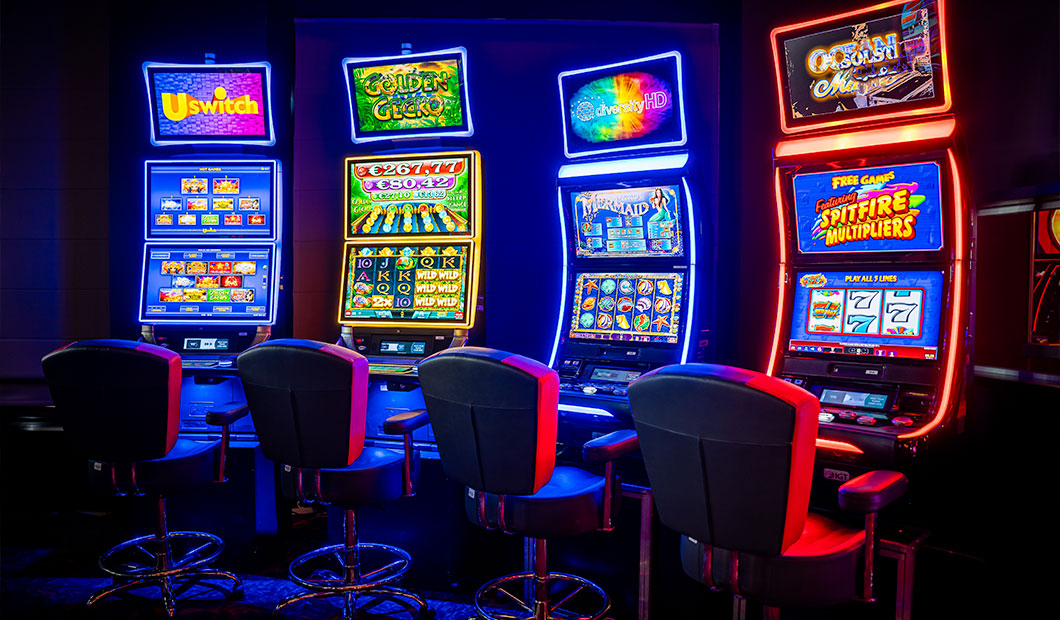
Gambling games have enthralled players throughout history, evolving from basic recreational activities to sophisticated forms of entertainment that combine fortune, skill, and fun. From the historical origins of gambling in cultures like the ancient societies of Mesopotamia and Rome to the glitzy corridors of modern casinos, the evolution of these games shows much about our nature and our interaction with luck. As societies have intertwined and technology has advanced, casino games have changed, mirroring the changes in society and developments in gameplay.
The initial iterations of gambling likely featured elementary dice-based games and betting on the outcomes of athletic contests. As time passed, these early games grew into better-organized games like table games, roulette, and the multitude one-armed bandits that fill casino floors today. Each era brought its own set of rules, aesthetics, and sociocultural significance. At present, casino games persist in evolving with the rise of online platforms, enabling players from everywhere to engage in a collective experience, further fusing the traditional with the digital age.
Initial Roots of Gambling Activities
Casino games have roots that extend back to historical civilizations, where gambling was strongly integrated in cultural practices and social customs. The earliest known forms of betting developed in Mesopotamia around three thousand BC, involving basic dice games made from bone bones. RÚT TIỀN 88CLB These early games laid the basis for more complex gambling activities, showing humans’ innate desire to find wealth and amusement through chance. 88clbbb.com
As societies evolved, so did their betting pursuits. In historic China, around 2300 BC, objects were unearthed that resembled early rudimentary versions of a lottery game game. More organized instances of betting developed in the ancient Roman civilization, where games of chance were a common pastime, often taking place in social events. The Romans developed multiple betting games, which composed dice and board activities, illustrating the pervasive nature of betting across various social strata.
With the passage of time, these primitive activities influenced the progress of contemporary casino games. In the Middle Ages, card activities became prevalent in Europe, paving the way for the professional gambling venues we know today. The transition from casual gambling to organized gambling in taverns and private houses marked a significant shift in how people interacted with activities of luck, leading to the subsequent establishment of casinos as dedicated venues for gambling.
The Emergence of Modern Casino Gaming
The late 1960s and 1970s marked a significant transition in the field of gaming, driven by technological advancements and shifts in cultural attitudes towards wagering. The emergence of computers and the World Wide Web altered the way gamblers interacted with their preferred games. Online casinos emerged, allowing gamers to enjoy classic table games like poker and blackjack from the convenience of their houses. This emerging online environment not only expanded availability to casino games but also drew in a younger demographic who found the convenience and variety attractive.
As digital gaming gained popularity, so did innovations in casino tech. The creation of high-quality software and graphics changed traditional casino games into captivating experiences. Players could now connect with authentic dealers through live streaming, importing the feel of physical casinos directly into their homes. This blending of live gaming with digital interfaces created a novel combination that elevated the social aspect of playing, making it possible for people to engage and challenge with others around the world.
Additionally, the emergence of gaming on mobile devices dramatically changed the gambling environment. With the widespread use of smartphones and tablets, players can access their preferred gaming options anywhere, at any time. Mobile applications offer a extensive range of options customized for mobile screens, catering to the busy daily life of modern users. This availability has produced growing participation in casino games, driving the surge of the gaming industry. As a result, the outlook of casino gaming continues to progress, adapting to new technologies and shifting consumer preferences.
The Impact of Technology on Casino Games
The evolution of technology has greatly changed casino games, enhancing the overall experience for players for players around the world. With the introduction of the internet, online casinos emerged, allowing players to play their preferred games from the safety of their own homes. This shift not only made casino games more accessible but also increased the variety of games offered, as online platforms could offer many different versions of traditional games without the limitations of brick-and-mortar establishments.
The rise of mobile technology further transformed the casino gaming landscape. With the proliferation, players can to engage in casino games whenever and wherever they want. This mobility has resulted in the development of dedicated mobile applications and optimized websites that provide seamless gaming experiences. Additionally, innovations such as live dealer games have brought the authentic atmosphere of a casino into players’ living rooms, connecting between physical and online gaming.
Furthermore, advancements in AI and VR are leading to the next generation of casino games. AI improves game design and player interaction, creating tailored experiences based on user behavior and preferences. Meanwhile, virtual reality provides immersive environments where players can interact in a virtual casino environment, making the gaming experience more exciting and lifelike. As technology continues to evolve, the future of casino games seems bright, filled with endless possibilities for advancements and entertainment.
